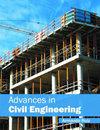不同添加剂对沥青混合料疲劳行为影响的研究综述
IF 1.6
4区 工程技术
Q3 CONSTRUCTION & BUILDING TECHNOLOGY
引用次数: 0
摘要
由于反复重载,疲劳现象大大削弱了路面的强度。为了增强抗疲劳性,许多研究都对沥青混合料中的各种添加剂进行了探讨。本综述重点关注影响添加剂(包括纤维、聚合物、纳米材料、废料和生物材料)在改善沥青混合料疲劳性能方面效果的关键变量。该研究首先确定了用于沥青混合料的不同添加剂和疲劳测试方法。研究评估了改性剂含量和大小、基质沥青胶结料类型、混合过程、分散行为和测试条件等因素对改性沥青混合料疲劳行为的影响。此外,还评估了添加剂应用的成本效益和环境影响。此外,还概述了改性沥青混合料的研究空白和未来前景。现有研究表明,玄武岩纤维、聚酯纤维、苯乙烯-丁二烯-苯乙烯(SBS)、纳米二氧化硅、橡胶屑和生物油等添加剂可提高路面结构的疲劳寿命。然而,由于实际影响有限和知识不足,改性剂的应用面临挑战。需要进一步研究添加剂的分散性、相容性、抗老化性、经济可行性以及形态和微观机械方面的改性机理等因素,以提高改性沥青混合料的疲劳性能。本文章由计算机程序翻译,如有差异,请以英文原文为准。
A Review of the Studies on the Effect of Different Additives on the Fatigue Behavior of Asphalt Mixtures
The fatigue phenomenon significantly weakens road pavement due to repeated reloading. To enhance fatigue resistance, numerous studies have explored various additives in asphalt mixtures. This review focuses on key variables influencing the effectiveness of additives, including fibers, polymers, nanomaterials, waste materials, and biomaterials, in improving the fatigue performance of asphalt mixtures. The study initially identifies different additives and fatigue testing methods used for asphalt mixtures. It evaluates the impact of factors such as modifier content and size, base asphalt binder type, mixing processes, dispersion behavior, and testing conditions on the fatigue behavior of modified asphalt mixtures. The cost-effectiveness and environmental impact of additive application have also been assessed. Additionally, research gaps and future prospects for modified asphalt mixes are outlined. Existing studies demonstrate the benefits of additives like basalt fiber, polyester fiber, styrene–butadiene–styrene (SBS), nanosilica, crumb rubber, and biooils in enhancing the fatigue life of pavement constructions. However, challenges exist in the application of modifiers due to limited practical implications and insufficient knowledge. Further research is needed on factors such as additives’ dispersity, compatibility, aging resistance, economic viability, and modifying mechanisms in morphological and micromechanical aspects to enhance the fatigue performance of the modified asphalt mixture.
求助全文
通过发布文献求助,成功后即可免费获取论文全文。
去求助
来源期刊

Advances in Civil Engineering
Engineering-Civil and Structural Engineering
CiteScore
4.00
自引率
5.60%
发文量
612
审稿时长
15 weeks
期刊介绍:
Advances in Civil Engineering publishes papers in all areas of civil engineering. The journal welcomes submissions across a range of disciplines, and publishes both theoretical and practical studies. Contributions from academia and from industry are equally encouraged.
Subject areas include (but are by no means limited to):
-Structural mechanics and engineering-
Structural design and construction management-
Structural analysis and computational mechanics-
Construction technology and implementation-
Construction materials design and engineering-
Highway and transport engineering-
Bridge and tunnel engineering-
Municipal and urban engineering-
Coastal, harbour and offshore engineering--
Geotechnical and earthquake engineering
Engineering for water, waste, energy, and environmental applications-
Hydraulic engineering and fluid mechanics-
Surveying, monitoring, and control systems in construction-
Health and safety in a civil engineering setting.
Advances in Civil Engineering also publishes focused review articles that examine the state of the art, identify emerging trends, and suggest future directions for developing fields.
 求助内容:
求助内容: 应助结果提醒方式:
应助结果提醒方式:


